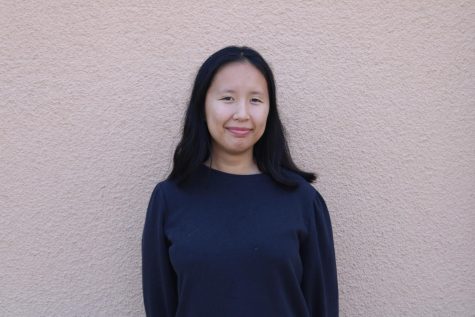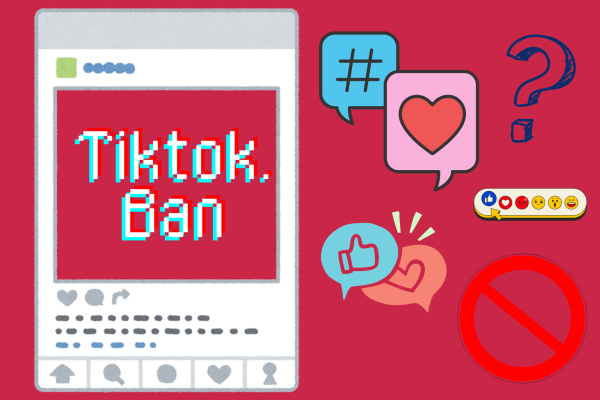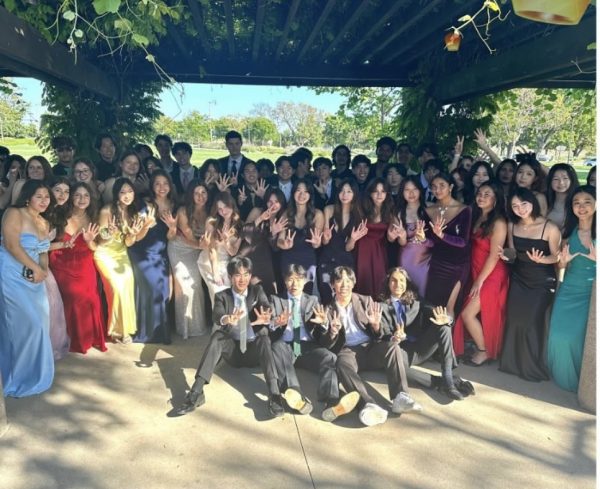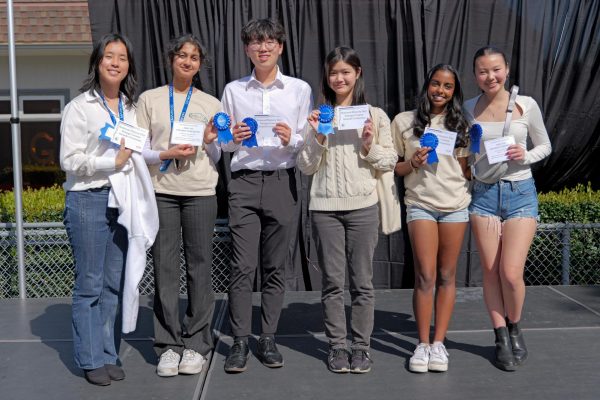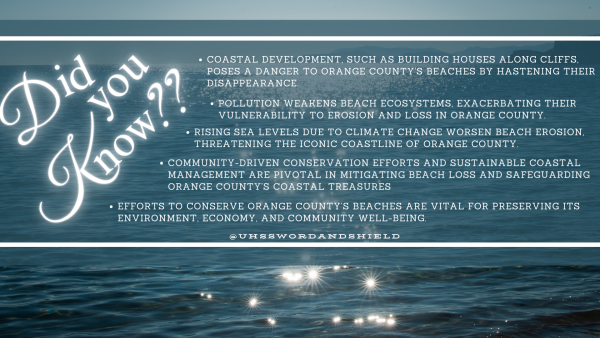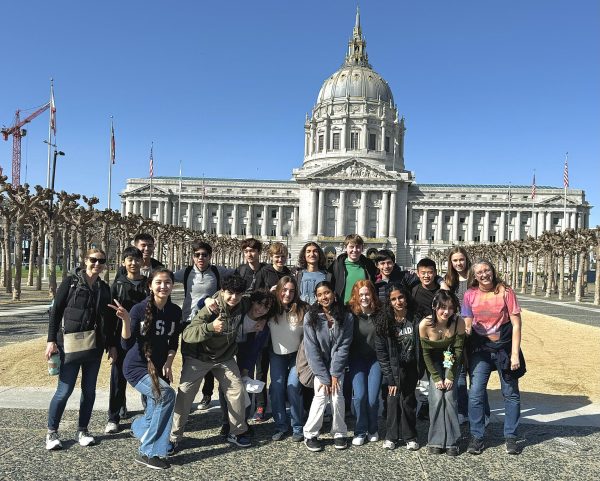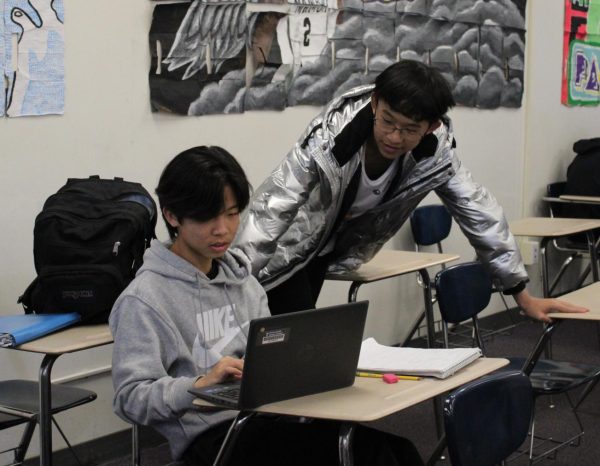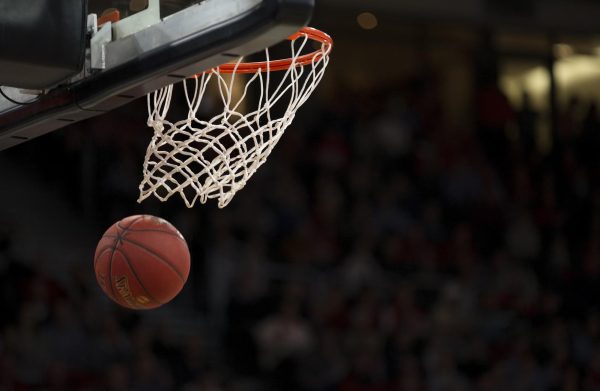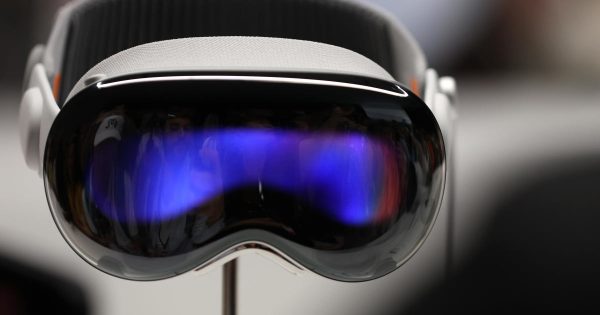UHS Ethics Bowl Attends SoCal Regionals Competition
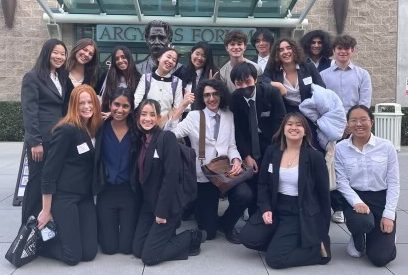
The UHS Ethics Bowl teams pose for a group photo at the SoCal Ethics Bowl Regional Competition at Chapman University.
March 28, 2023
After months of research, writing and public speaking practice, the UHS Ethics Bowl competed in the National High School Ethics Bowl Regional Competition on Feb. 11, hosted by Chapman University. For the first time in the UHS Ethics Bowl history, the club sent three teams to compete at the competition. This year, there were fifteen possible ethics bowl cases that competitors could encounter, ranging from the permissibility of banning Russian athletes from competitions to the morality of dentists enforcing their patients to floss their teeth.
The competition was divided into three preliminary rounds, a semi-final round and a final round. During each preliminary round, teams presented a randomly selected case in front of three judges, answering the designated questions for their case.
Ethics Bowl Co-President and senior Caitlyn Liao detailed the intensive preparation process team members were involved in, both within and outside of school hours for the regional competition. The case prep document totaled nearly 100 pages and many people on the team had a majority of the document’s information memorized.
“We conducted three months of case research, deciding on which ethical frameworks to use to approach each moral dilemma, and finding statistical evidence,” Liao said. “Since all of the competition is on-demand speaking, we also had frequent meetings where we would run practice rounds and determine team rotations and roles.”
The UHS Ethics Bowl initially planned to bring two teams to the competition. However, due to a last-minute withdrawal from one of the schools that were originally planning to participate, the ethics bowl had the opportunity to form a third team within hours of the competition.
Senior Amanda Nguyen was a part of the newly formed team. Despite having no prior experience competing in the ethics bowl, Nguyen saw the opportunity as a chance to become more engaged in debate and philosophy.
“After listening to some of the arguments that Caitlyn Liao made in AP Literature and her references to moral philosophy, I was pretty intrigued, and my friend, senior Kashish Sachdeva, was actually preparing for the competition and told me about how there was an opportunity for new members,” Nguyen said. “I thought it was too good of an opportunity to pass. I wanted to expose myself to new thinkers and another debate style.”
Ms. Ann Campbell, social sciences teacher, and the UHS Ethics Bowl Club Advisor, oversaw all three teams at the competition.
“I think it was great having three teams, it was definitely fun watching all of them compete,” Ms. Campbell said. “It is amazing what kids can really do on their feet.”
Despite not advancing through to the state competition, Team A, consisting of seniors Caitlyn Liao, Grace Wang and Kashish Sachdeva, juniors Chiara Rignot and Elaine Wang and sophomores Ryan Noorizadeh and Justin Pollack, managed to bring home the “Best Speech” and “Best Commentary” awards. Meanwhile, Team C, consisting of seniors Tracy Le and Amanda Nguyen, sophomores Cyrus Mokpatti and Chloe Xiao and freshmen Benny Pollack, won the “Best Judges Interaction” award.
Several members noted a difference in the strength of the teams this year in comparison to previous years.
“I was really impressed with our teams; this is probably our strongest set of teams that we have had,” Ms Campbell said. “These students have super strong and concrete knowledge and compassion. They definitely deserved to go further in the competition.”
Despite the final results, competing with and representing the UHS Ethics Bowl was taken as an eye-opening experience for many.
“I can definitely say that I gained new perspectives by prepping for the competition,” Nguyen said. “I learned that oftentimes it is more fun to explore unexpected topics than [to] view from them because sometimes you might just resonate with other conversationalists more.”


